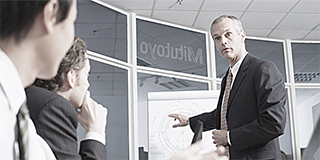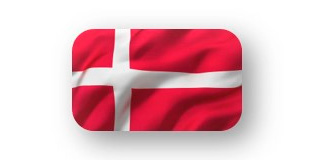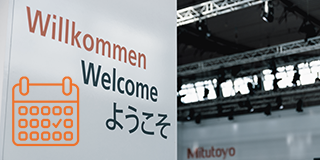- Nederlands, Belgique / België
- Česky, Česká republika
- Deutsch, Deutschland
- Español, España
- Português, Portugal
- English, Europe
- Français, France
- Italiano, Italia
- Magyar, Magyarország
- Nederlands, Nederland
- Deutsch, Österreich
- Polski, Polska
- Română, România
- Suisse / Schweiz / Svizzera
- Svenska, Sverige
- Suomeksi, Suomi
- Türkçe, Türkiye
- English, United Kingdom
- Slovenská, Slovak
-
Worldwide


 Welkom bij Mitutoyo Nederland, België en Danmark
Welkom bij Mitutoyo Nederland, België en Danmark
- Alle Product Highlights
- Nieuw SmartMeasure-AL
- Nieuwe SJ-220
- Nieuwe QuantuMike
- LEGEX Takumi
- Schuifmaten
- Measurlink 10
- HR-600 Series
- TAGLENS
- MCOSMOS 5
- Crysta Apex V
- Formtracer Avant
- MiSTAR 555
- Bluetooth Data Communicatie
- Profielprojector PJ Plus
- QuickVision Pro
- Alle Producten per Industrie
- MeasurLink 10
- MeasurLink 10
- Medical
- Automotive
- Aerospace
- Energy
- Gen. Manufacturing
- Electronics
- Case Studies
- Alle Handmeetgereedschappen
- Schuifmaten
- Schroefmaten
- Binnenmeetinstrumenten
- Diepte meetinstrumenten
- Hoogtemeters
- Meetklokken en Snelopnemers
- Hulpstukken en diversen
- Kalibratie instrumenten
- Eindmaten
- Geautomatiseerde meetsystemen
- Alle CMM
- Kleine en middelgrote CMM's
- In-Line en werkvloer CMMs
- CMMs met grote afmetingen
- CMM Rotatie tafels
- CMM Tastsystemen
- Styli
- Opspansystemen
- CMM Accessoires
- CMM Software
- SmartMeasure-AL
- Alle Vision
- 2D Vision Meetsystemen Quick Image
- Manueel 3D Vision Meetsystemen Quick Scope
- 3D CNC Vision Meetsystemen Quick Vision
- 3D CNC Multisensor Meetsystemen Quick Vision
- 3D CNC Meetsystemen voor Micro Geometrieën
- Objectieven en kalibratiekaarten
- Alle Optisch
- Loepen
- Profiel Projectoren
- Meetmicroscopen
- Microscoop Units
- Oculairs en Objectieven
- TAGLENS
- Schuifmaten
- Digitale schuifmaten
- Schuifmaten voor speciale doeleinden
- Analoge schuifmaten
- Schuifmaat accessoires
- Schroefmaten
- Digimatic schroefmaten & Analoge schroefmaten
- Accessoires voor schroefmaten
- Inbouwschroefmaten
- Accessoires voor inbouwschroefmaten
- Binnenmeetinstrumenten
- Binnenmeetinstrumenten
- Binnenmeettasters
- Accessoires voor binnenmeetinstrumenten
- Meetklokken en Snelopnemers
- Digitale meetklok
- Accessoires voor meetklokken
- Zwenktaster
- Meetklok
- Accessoires voor meetklokken
- Diktemeter, dieptemeter
- Hulpstukken en diversen
- Statieven
- Precisie spanklemmen
- Vlakplaten en sinusplaten
- Hoekmetingen en raamwaterpassen
- Voelermaten en linialen
- Eindmaten
- Stalen eindmatensets
- Stalen losse eindmaten
- CERA eindmatensets
- CERA keramische losse eindmaten
- Speciale eindmaten
- Accessoires voor eindmaten
- Kleine en middelgrote CMM's
- CRYSTA-Apex V - 500, 700, & 900 Series
- CRYSTA-Apex V - 1200 Series
- CRYSTA-Apex V - 1600 & 2000 Series
- CRYSTA-Apex EX Series for REVO
- STRATO-Apex - 500, 700, & 900 Series
- STRATO-Apex - 1600 Series
- LEGEX Series
- Styli
- Styli Kits
- Rechte tasters
- Diamant Tasters
- IJkkogel Keramiek Ø10,0 mm
- Tasters voor bewerkingsmachines
- Ster Tasters
- Tasters voor Ster Tasters
- Cilinder Tasters
- Schijf Tasters
- Tip Tasters
- Verlengstukken
- Houders
- Adapters
- Verbindingstukken
- Bevestiging voor taster onderdelen
- Gereedschappen voor Tasters
- StyliCleaner
- Opspansystemen
- CMM-opspansets
- eco-fix pallet opspansysteem kits
- FixtureBuilder Software
- eco-fix schroeven en gereedschappen
- eco-fix en eco-fix uitbreidingssets
- eco-fix en eco-fixplus-componenten
- 3D CNC Vision Meetsystemen Quick Vision
- Quick Vision ACTIVE
- Quick Vision APEX / HYPER
- Quick Vision ACCEL
- Quick Vision ULTRA
- Profiel Projectoren
- Profiel Projector PJ Serie
- Profiel Projector PV Serie
- Profiel Projector PH Serie
- Data Processor QM-Data
- Accessories
- Meetmicroscopen
- TM Series Gen. B
- MF Series Gen. D
- MF-U Series Gen. D
- Illumination Sources
- Vision Unit
- M2 Software
- QSPAK-VUE Software
- Oculairs en Objectieven
- ML-Series Objectives
- Brightfield Observation Objectives
- Brightfield/Darkfield Observation Objectives
- NIR Objectives
- NIR LCD Objectives
- NUV Objectives
- NUV LCD Objectives
- UV Objectives
- UV LCD Objectives
- Oppervlakte ruwheid
- Surftest SJ-220
- Surftest SJ-310
- Surftest SJ-410
- Surftest SJ-500
- Surftest SV-2100
- Surftest SJ-500P
- Surftest SV-2100P
- Formtracer Avant FTA-S3000
- Surftest Extreme SV-3000CNC
- Surftest Extreme SV-M3000CNC
- Oppervlakte ruwheid & Contour
- Formtracer Avant FTA-D3000 / FTA-D4000 Series
- Formtracer CS-3300
- Formtracer Extreme SV-C4500CNC
- Formtracer Extreme SV-C4500CNC HYBRID Type 1
- Formtracer Extreme CS-5000CNC and CS-H5000CNC
- Portable Hardness Testers
- Impact Type Hardheid Test Unit HARDMATIC HH-V400
- Digital and Analogue Durometers HARDMATIC HH-300
- Reference materials and indenters
- Hardness reference materials
- Hardness indenters and replacement balls
- Meettasters
- ABSOLUTE Digimatic Linear Gauge LGS Series
- Air Drive Unit
- ABSOLUTE Digimatic Linear Gauge LGD Series
- Standard Linear Gauge LGF Series
- Linear Gauge LG100 Series
- Linear Gauge LG200 Series
- Slim Head Linear Gauge LGK Series
- Slim Head Linear Gauge LGB Series
- Large Measuring Range Linear Gauge LG
- Laser Hologauge
- Lage meetkracht meetinstrument
- LITEMATIC VL-50 Gemotoriseerde lage meetkracht, zeer hoog nauwkeurig meetinstrument
- Tellers en uitleeseenheden
- EJ Counter and Interfaces for Linear Gauges
- EC Counter for Linear Gauges
- EG Counter for Linear Gauges
- EH Counter for Linear Gauges
- EV Counter for Linear Gauges
- Display Unit for EV Counter
- Laser Scan Micrometers
- Laser Scan Micrometer Measuring Unit
- Laser Scan Micrometer Controller Unit
- Laser Scan Micrometer Interface Unit
- Laser Scan Micrometer Optional Accessories
- DRO Linear Scales en Tellers
- DRO Linear Scales AT103
- DRO Linear Scales AT103 - High Accuracy
- DRO Linear Scales AT113
- DRO Linear Scales AT113 - High Accuracy
- DRO Linear Scales AT116
- DRO ABS Linear Scales AT715
- Universal DRO KA-200 Counter
- NC Linear Scales
- NC Linear Scales ST36
- NC Linear Scales ST46-EZA
- NC Linear Scales ABS ST700
- NC Linear Scales ABS ST1300
- NC Linear Scales AT211
- NC Linear Scales ABS AT1100
- NC Linear Scales ABS AT1300
- NC Linear Scales AT402E
- NC Linear Scales AT203
- NC Linear Scales AT402E with cable A/B
- NC Linear Scales AT402E with cable C
- Opbouwlinialen
- Horizontal ABSOLUTE Scale Coolant Proof IP66
- Horizontal ABSOLUTE Scale Standard
- Horizontal ABSOLUTE Scale Measurement Direction Switching
- Horizontal ABSOLUTE Scale Diameter Function
- Vertical ABSOLUTE Scale Standard
- Vertical ABSOLUTE Scale Measurement Direction Switching
- Vertical ABSOLUTE Scale Diameter Function
- Signaal kabels
- USB Input Tool Direct Kabel
- Digimatic Data Kabels
- Verlengkabels voor Digimatic Kabels
- Draadloze communicatie
- Wireless Communication System U-WAVE
- U-WAVE Bluetooth
- U-WAVE-T Connection Cables and Connection Units
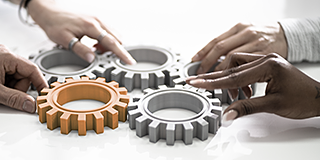 Original Equipment Manufacturers (OEM)
Original Equipment Manufacturers (OEM)
Mitutoyo OEM can address missing expertise or resources by supplying you with our renowned Metrology equipment that seamlessly integrates into your products.
 Aerospace
Aerospace
Complex aerospace applications need fast, extremely precise quality control to ensure accurate assemblies. See how Mitutoyo makes it happen.
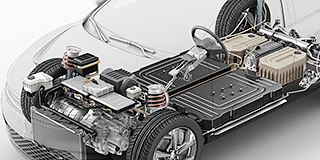 Automotive
Automotive
The automotive industry continues to innovate, and Mitutoyo delivers the advanced inspection and scanning capabilities to help manufacturers achieve ongoing production
 Energy
Energy
Make critical equipment components for oil and gas, solar, wind, or nuclear as precise as possible with advanced metrology solutions from Mitutoyo.
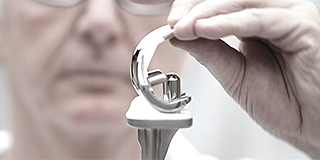 Medical
Medical
Boast unmatched accuracy and reliability for diagnostic and therapeutic devices, pharmaceutical goods, and countless other highly sensitive medical engineering applications with leading precision metrology solutions.
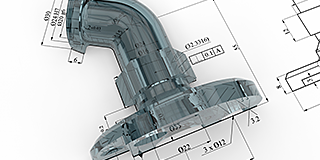 Gen. Manufacturing
Gen. Manufacturing
Ensure high repeatability and rigorous quality control with form measurement solutions, coordinate measuring machines and precision measuring tools from Mitutoyo.
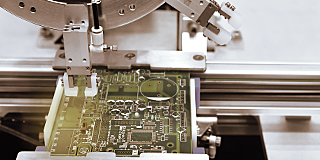 Electronics
Electronics
The non-contact and vision measurement solutions from Mitutoyo bring microscopic accuracy to smaller and denser electronic components.
 Case Studies
Case Studies
For an overview of Mitutoyo's capabilities, this is no greater place to look than our marvelous collection of case studies.
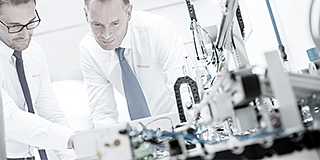 Mitutoyo Integrators
Mitutoyo Integrators
Integrating your measuring devices into existing processes made easy
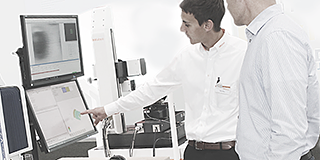 Product Demos
Product Demos
Online of offline, get a product demonstration today
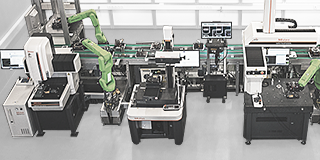 Manufacturing Automation Integration
Manufacturing Automation Integration
Turn your factory into a smart factory with the help of Mitutoyo
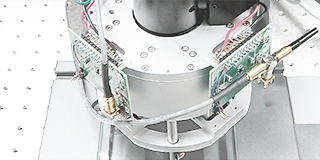 Custom Products
Custom Products
Custom-made products for unique applications
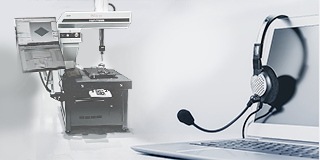 Connectivity
Connectivity
Mitutoyo offers a range of products that incorporate connectivity features to enhance data management, analysis, and productivity.
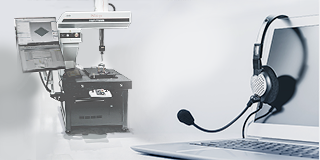 Helpdesk Support
Helpdesk Support
Gratis Helpdesk support voor klanten met service contracten
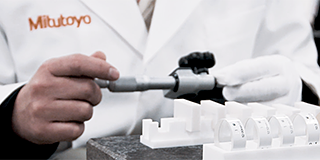 Kalibratie Services
Kalibratie Services
Laat je meetapparatuur kalibreren door een laboratorium dat je vertrouwt
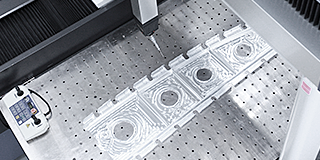 Meetservices
Meetservices
Laat uw werkstukken en onderdelen opmeten door onze Aukom gecertificeerde specialisten
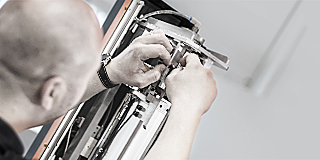 Reparaties & Reserve onderdelen
Reparaties & Reserve onderdelen
Reserveonderdelen en reparaties voor Mitutoyo-apparaten
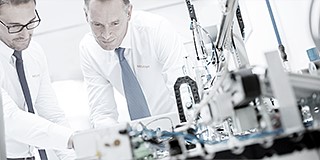 Service contracten
Service contracten
Klantgericht servicecontractconcept in onderhoud en kalibratie
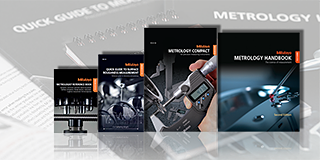 Education Pack
Education Pack
Er is geen betere hulp dan posters of lesmateriaal van Mitutoyo, perfect voor de werkplaats of het klaslokaal.
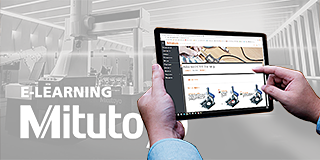 E-Learning
E-Learning
Voor degenen die geïnteresseerd zijn in metrologie biedt Mitutoyo E-Learning-cursussen om studenten, personeel of zelfs hobbyisten op te leiden.
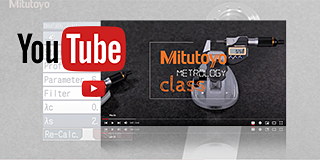 Online Material
Online Material
Als je op zoek bent naar een snelle manier om meer te leren over meten, bekijk dan onze vele instructievideo's
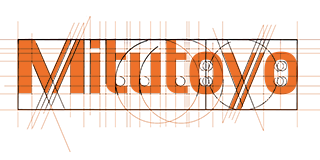 Ontdek Mitutoyo
Ontdek Mitutoyo
Het grootste metrologiebedrijf ter wereld
 Certificeringen en legitimiteit
Certificeringen en legitimiteit
Bekijk hier onze certificeringen, accreditaties en legitimiteit zodat u verzekerd bent van betrouwbare en geverifieerde diensten.
 Merchandise
Merchandise
Voor degenen die in stijl over de winkelvloer willen lopen, ga naar de shop en steun je favoriete merk.
 Pers informatie
Pers informatie
Bekijk onze laatste persberichten.
 Alle nieuwsberichten
Alle nieuwsberichten
Lees hier meer nieuws over Mitutoyo Nederland, België en Denemarken. Deze pagina wordt regelmatig vernieuwd.
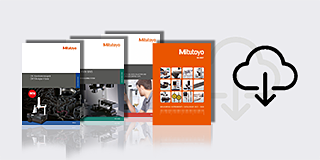 Product informatie
Product informatie
Bekijk en download onze catalogus, productbrochures en meer
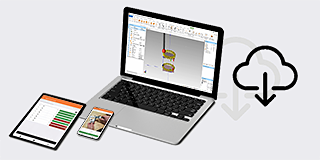 Software
Software
Download onze software en updates gemakkelijk en snel
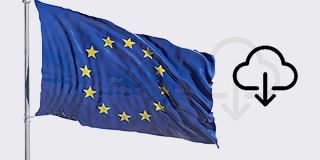 Verklaringen van conformiteit
Verklaringen van conformiteit
Hier kun je de volledige versies voor de EU en het VK downloaden
 Gratis wallpapers
Gratis wallpapers
Download hier gratis de officiële wallpapers van Mitutoyo
 Online Catalogus
Online Catalogus
Bekijk ons uitgebreide assortiment in onze online catalogus!
-
Products
- Terug Products
- Products
- Product Highlights
-
Producten per Industrie
- Terug Producten per Industrie Alle Producten per Industrie
- MeasurLink 10
- MeasurLink 10
- Medical
- Automotive
- Aerospace
- Energy
- Gen. Manufacturing
- Electronics
- Case Studies
-
Handmeetgereedschappen
- Terug Handmeetgereedschappen Alle Handmeetgereedschappen
- Schuifmaten
- Schroefmaten
-
Binnenmeetinstrumenten
- Terug Binnenmeetinstrumenten Binnenmeetinstrumenten
- Binnenmeetinstrumenten
- Binnenmeettasters
- Accessoires voor binnenmeetinstrumenten
-
Diepte meetinstrumenten
- Terug Diepte meetinstrumenten Diepte meetinstrumenten
- Diepte schroefmaat
- Diepteschuitmaat
- Diepteschuifmaat accessoires
- Hoogtemeters
- Meetklokken en Snelopnemers
- Hulpstukken en diversen
-
Kalibratie instrumenten
- Terug Kalibratie instrumenten Kalibratie instrumenten
- Hoogteschroefmaat Height Master
- Stappeneindmaat
- Kalibratie apparatuur
- Eindmaten
- Geautomatiseerde meetsystemen
-
CMM
- Terug CMM Alle CMM
- Kleine en middelgrote CMM's
-
In-Line en werkvloer CMMs
- Terug In-Line en werkvloer CMMs In-Line en werkvloer CMMs
- MACH Ko-ga-me
- MACH 3A 653
- MACH V 9106
- MiSTAR 555
-
CMMs met grote afmetingen
- Terug CMMs met grote afmetingen CMMs met grote afmetingen
- CARB-Series
- CMM Rotatie tafels
-
CMM Tastsystemen
- Terug CMM Tastsystemen CMM Tastsystemen
- SurfaceMeasure
- REVO
- SP80
- TP7M
-
Styli
- Terug Styli Styli
- Styli Kits
- Rechte tasters
- Diamant Tasters
- IJkkogel Keramiek Ø10,0 mm
- Tasters voor bewerkingsmachines
- Ster Tasters
- Tasters voor Ster Tasters
- Cilinder Tasters
- Schijf Tasters
- Tip Tasters
- Verlengstukken
- Houders
- Adapters
- Verbindingstukken
- Bevestiging voor taster onderdelen
- Gereedschappen voor Tasters
- StyliCleaner
- Opspansystemen
-
CMM Accessoires
- Terug CMM Accessoires CMM Accessoires
- Behuizingen
- Veiligheidssystemen
-
CMM Software
- Terug CMM Software CMM Software
- MiCAT Planner
- MCOSMOS
- MAFIS Express
- MSURF
- SmartMeasure-AL
-
Vision
- Terug Vision Alle Vision
-
2D Vision Meetsystemen Quick Image
- Terug 2D Vision Meetsystemen Quick Image 2D Vision Meetsystemen Quick Image
- Quick Image
- Quick Image Software
-
Manueel 3D Vision Meetsystemen Quick Scope
- Terug Manueel 3D Vision Meetsystemen Quick Scope Manueel 3D Vision Meetsystemen Quick Scope
- Manual Quick Scope
- Quick Scope Software
-
3D CNC Vision Meetsystemen Quick Vision
- Terug 3D CNC Vision Meetsystemen Quick Vision 3D CNC Vision Meetsystemen Quick Vision
- Quick Vision ACTIVE
- Quick Vision APEX / HYPER
- Quick Vision ACCEL
- Quick Vision ULTRA
-
3D CNC Multisensor Meetsystemen Quick Vision
- Terug 3D CNC Multisensor Meetsystemen Quick Vision 3D CNC Multisensor Meetsystemen Quick Vision
- Quick Vision Hybrid
- Quick Vision WLI
-
3D CNC Meetsystemen voor Micro Geometrieën
- Terug 3D CNC Meetsystemen voor Micro Geometrieën 3D CNC Meetsystemen voor Micro Geometrieën
- UMAP Vision Systems
- UMAP Software
- Objectieven en kalibratiekaarten
- Optisch
- Vorm
-
Hardheid
- Terug Hardheid Alle Hardheid
- Portable Hardness Testers
-
Hardness Testing Software
- Terug Hardness Testing Software Hardness Testing Software
- AVPAK
-
Reference materials and indenters
- Terug Reference materials and indenters Reference materials and indenters
- Hardness reference materials
- Hardness indenters and replacement balls
-
Sensoren
- Terug Sensoren Alle Sensoren
-
Meettasters
- Terug Meettasters Meettasters
- ABSOLUTE Digimatic Linear Gauge LGS Series
- Air Drive Unit
- ABSOLUTE Digimatic Linear Gauge LGD Series
- Standard Linear Gauge LGF Series
- Linear Gauge LG100 Series
- Linear Gauge LG200 Series
- Slim Head Linear Gauge LGK Series
- Slim Head Linear Gauge LGB Series
- Large Measuring Range Linear Gauge LG
- Laser Hologauge
-
Lage meetkracht meetinstrument
- Terug Lage meetkracht meetinstrument Lage meetkracht meetinstrument
- LITEMATIC VL-50 Gemotoriseerde lage meetkracht, zeer hoog nauwkeurig meetinstrument
- Tellers en uitleeseenheden
- Laser Scan Micrometers
-
Surface Measure
- Terug Surface Measure Surface Measure
- Surface Measure 1008S
- Accessories
- Sensor Management Software
-
Digital Scales
- Terug Digital Scales Alle Digital Scales
- DRO Linear Scales en Tellers
-
NC Linear Scales
- Terug NC Linear Scales NC Linear Scales
- NC Linear Scales ST36
- NC Linear Scales ST46-EZA
- NC Linear Scales ABS ST700
- NC Linear Scales ABS ST1300
- NC Linear Scales AT211
- NC Linear Scales ABS AT1100
- NC Linear Scales ABS AT1300
- NC Linear Scales AT402E
- NC Linear Scales AT203
- NC Linear Scales AT402E with cable A/B
- NC Linear Scales AT402E with cable C
-
Opbouwlinialen
- Terug Opbouwlinialen Opbouwlinialen
- Horizontal ABSOLUTE Scale Coolant Proof IP66
- Horizontal ABSOLUTE Scale Standard
- Horizontal ABSOLUTE Scale Measurement Direction Switching
- Horizontal ABSOLUTE Scale Diameter Function
- Vertical ABSOLUTE Scale Standard
- Vertical ABSOLUTE Scale Measurement Direction Switching
- Vertical ABSOLUTE Scale Diameter Function
-
Data Management
- Terug Data Management Alle Data Management
-
Data Management Software
- Terug Data Management Software Data Management Software
- MeasurLink 10
- USB-ITPAK
-
Mini Processors
- Terug Mini Processors Mini Processors
- Digimatic Mini Processor DP-1VA LOGGER
- Signaal kabels
- Draadloze communicatie
- Interfaces
-
Timerbox, Digimatic Switch Box, Tolerance Box
- Terug Timerbox, Digimatic Switch Box, Tolerance Box Timerbox, Digimatic Switch Box, Tolerance Box
- Digimatic Timerbox
- Digimatic Switch Box
- Industries
- Smart Factory
- Service
-
Educatie
- Terug Educatie
- Educatie
- Education Pack
- E-Learning
- Online Material
-
Over ons
- Terug Over ons
- Over ons
- Ontdek Mitutoyo
-
Certificeringen en legitimiteit
- Terug Certificeringen en legitimiteit
- Certificeringen en legitimiteit
- Certificaten & Accreditaties
- Legitimiteit van de producten (FAKE)
- Mitutoyo Danmark
- Merchandise
-
Nieuws
- Terug Nieuws
- Nieuws
-
Onze promoties
- Terug Onze promoties
- Onze promoties
- Pers informatie
- Evenementen
-
Alle nieuwsberichten
- Terug Alle nieuwsberichten
- Alle nieuwsberichten
- Klantcase - Mitutoyo en Nemera: Partnerschap op het gebied van nauwkeurige farmaceutische apparatuur
- EMO 2025
- Klantcase - Ceratec en Mitutoyo profiteren van elkaars expertises
- TechDemoweek 2025
- MITUTOYO VERSTERKT MET R&D DE EIGEN MARKTGEDREVEN AANPAK
- MITUTOYO, CRAFT EDUCATION EN DMG MORI BRENGEN METEN EN MAKEN BIJ ELKAAR
- Downloads
Naam en filosofie
The Mitutoyo Name
The Japanese company name Mitutoyo roughly translatable as “abundance of three elements” stands for prudence, bonhomie, and strength, the attitudes so highly esteemed by the company’s founder, Mr Yehan Numata.
These central concepts of Yehan Numata’s thinking were complemented by aspects of Western philosophy he encountered while studying business sciences in the USA.
According to Yehan Numata, son of an esteemed Japanese temple priest, human beings should possess three specific qualities: sensibility, good-naturedness, and strength. Sensibility he interpreted as the capacity for accurate observation, good-naturedness as compassion and benevolence towards your next while strength was necessary to fulfill correctly identified requirements effectively.
These three indispensable human traits were also established as basics for his business philosophy converted into readiness for innovation, general fairness, and orientation towards the future - three virtues crucial for doing good as a human being and achieving success in business.

The number three, in Japanese, pronounced “Mitu” or “Mitsu” is of importance in Japanese culture and religion, for example with regards to the enumeration of religious elements. This also explains why quite a few company names include the syllables “Mitu” – just like in the name.
The Mitutoyo Spirit
To become a complete man, one must acquire wisdom, benevolence, and valor. With wisdom only, one tends to be cold. Benevolence alone makes one weaker. With valor only, one may reach beyond his capabilities. However, when the three qualities are combined, one will become a complete man. Similarly, success in enterprise lies in the knowledge of Heaven, Earth, and Man. The business will succeed only when these factors, "heaven-sent" chances, natural opportunities, and harmony of man are present. Without even one factor, success is remote. In Buddhism, Butsa (Buddha), Po (doctrine) and So (Priest) are three principal treasures for its promotion of teaching. In Christianity, God, Bible, and Minister.
The word MITUTOYO signifies three abundances. "Mitsu" (みつ) means three, while "Toyo" (とよ) stands for states of abundance. The name MITUTOYO was selected, with a sincere wish to see more complete men, to create a prosperous enterprise, and to introduce righteous religion to all, along with the lasting wish for a peaceful world and fulfillment of meaningful life. (Yehan Numata)
Good environment, good people, good technique - this has been Mitutoyo's company motto since 1934. Mitutoyo regards it as their task to support society by producing high-precision measuring instruments and fostering the progress of quality. The company slogan "Mitutoyo - precision is our profession" expresses the firm's very high demand for employees and products. Their performance has to meet the highest standards because Mitutoyo wishes to ensure precision in all fields of industry. This is the premium manufacturer's way to contribute to our global society's prosperity. Mitutoyo will continue its endeavor to foster precision measurement techniques to support the customers in their production processes and to strengthen their market position.
The Mitutoyo Philosophy
The Mitutoyo Corporate Philosophy is essentially the perpetual core values that our organization and employees shall uphold. It unites all the Mitutoyo Companies and their employees throughout the world in a common understanding and commitment.
Our founding Spirit
- To contribute to people’s welfare through the support of the advancement of Buddhist understanding.
- To see that Mitutoyo excels in its field of expertise and in its business conduct throughout the world.
Our Management Principles
- To contribute to the well-being of society through precision measurement technologies.
- We shall conduct our business based on the following values:
1. Provide solution engineering to support our client's business development.
2. Contribute globally to the advancement of industrial measurement capability.
3. Cultivate healthy relationships and common prosperity with trading partners.
4. Support and promote global peace, human happiness, and harmony with the environment.
5. Apply business practices that reflect the integrity of Mitutoyo and our world-leading brand.
6. Nurture a vibrant corporate culture that inspires a passion in our personnel to do their best; to be the best.
Our Corporate Motto
"Good Environment, good people, good technique"
Our Guiding Precepts
"Sincerity, thoughtfulness, determined spirit"
OUR FOUNDING SPIRIT
Our founder's wish is expressed in the foundation of our Company.
OUR MANAGEMENT PRINCIPLES
The company's mission and basic management objectives.
OUR CORPORATE MOTTO
The company's basic policy of management.
OUR GUIDING PRECEPTS
A guide for implementing "Our Management Principles".
ETHICAL CONDUCT CODE
Rules of conduct to support our corporate ethics.
Ethical Conduct Code
The Mitutoyo Group's Ethical Conduct Code sets forth ethical criteria of judgment and conducts that all executives and employees at the Mitutoyo Group must observe in every aspect of corporate activities. We at the Mitutoyo Group will conduct ourselves in a manner that complies with the Ethical Conduct Code and choose the ethical way without exception whenever a business decision involves a conflict between profit and ethics.
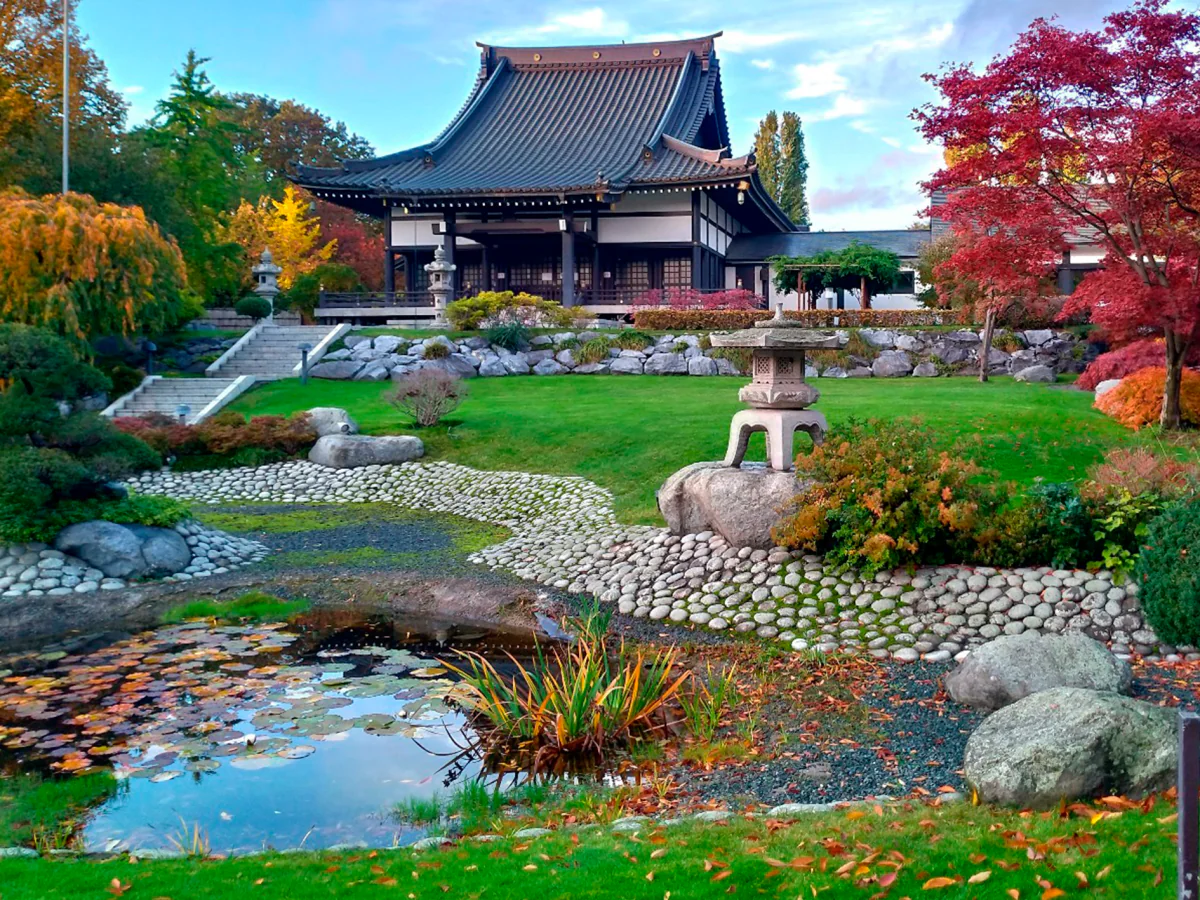
EKO House of Japanese Culture
Een belangrijke sleutel tot het begrijpen van de bedrijfsfilosofie van Mitutoyo is het EKO-huis dat is geschonken door de oprichter van het bedrijf, Yehan Numata. Het is een plek om direct kennis te maken met de essentiële elementen van de Japanse cultuur: gebouwen en tuinen, cultuur en religies.
Een boeddhistische tempel en de prachtige sfeer van de tuinen in Japanse stijl vormen het middelpunt van het EKO Huis van de Japanse Cultuur in Düsseldorf-Niederkasse in de buurt van het Europese Mitutoyo hoofdkantoor. Aan de tempel zijn expositie- en seminarruimten verbonden waar verschillende cursussen voor concerten, films, lezingen en vooral Japanse dansen of "Ikebana" worden uitgevoerd.
Het EKO-huis is ook een plaats voor ontmoetingen tussen het Verre Oosten en het Westen.



